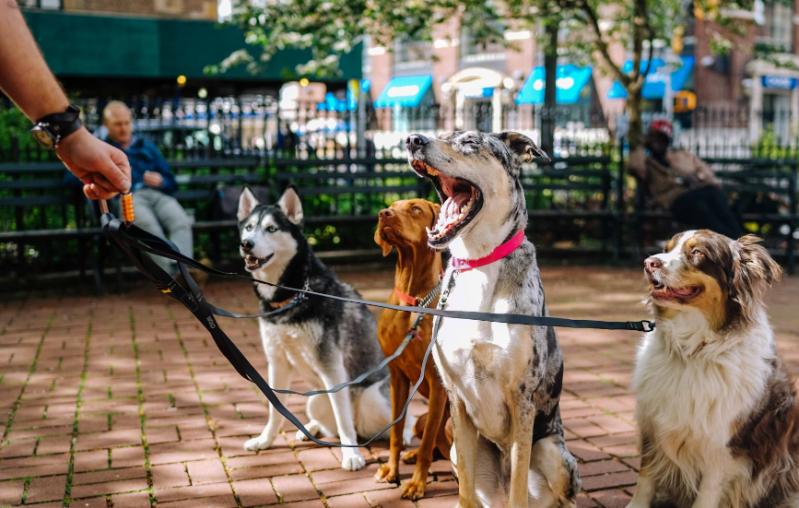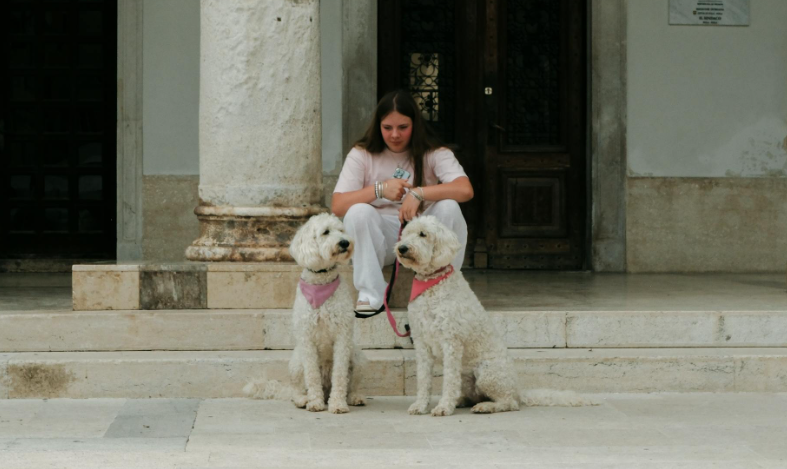Why Are Dogs So Loyal? The Science Behind It

© Matt Nelson / Unsplash
Is your dog your BFF?
Dogs have been domesticated for thousands of years and have evolved alongside humans as loyal companions. They have formed strong bonds with their owners, exhibiting loyalty and love that is unparalleled in the animal kingdom. That makes pet owners love their dogs even more.
But, have you ever wondered why dogs are so loyal to their human companions? What is it that makes them so faithful?
Based on Biology: Why Are Dogs Loyal?
The loyalty of dogs has its roots in their genetics, stemming from their ancestry as descendants of wolves with a strong pack mentality. Centuries of breeding to live and work with humans have strengthened the bond between dogs and humans.
Dogs possess oxytocin, also known as the “love hormone,” which promotes social bonding and trust, released during interactions with humans, similar to maternal bonding between a mother and her puppies.
What About Behaviors?
Dogs are social creatures that thrive on interaction and form strong bonds with their human companions. They are highly observant, picking up on their owner’s emotions and body language, enabling them to adjust their behavior accordingly.
Dogs are also known for their protective instincts, bred over time to safeguard their owners and property, which contributes to their loyalty and protectiveness.

Emotional Connections
Dogs are emotionally intelligent creatures capable of forming deep bonds with their owners, they respond empathetically to human emotions, which strengthens their loyalty. Their companionship and shared experiences with humans foster this loyalty, as dogs thrive on companionship. While dogs may not feel gratitude in the human sense, their loyalty can be seen as a form of appreciation, recognizing their owners as providers and friends through care, shelter, and love.
Dogs Loyalty Is Also Based on Evolution
The co-evolution of dogs and humans spans thousands of years, fostering a strong bond between the two species. Initially domesticated for hunting and guarding, dogs have evolved into cherished companions alongside humans.
The loyalty of dogs originates from their wolf ancestors, where loyalty and trust were crucial for survival within a pack. Dogs have inherited these traits from wolves, forming strong bonds with humans akin to those within a wolf pack.
How Can You Tell That Your Dog Is Loyal?
Determining whether your dog is loyal involves observing various behaviors. Signs of loyalty may include your dog following you around, responding when called, displaying protective behavior towards you or your home, and showing affection through actions like cuddling or licking.
However, loyalty can also be demonstrated through consistent obedience, attentiveness, and a strong bond between you and your dog.

Are Some Dogs More Loyal Than Others?
Certain dog breeds are often recognized for their particularly loyal nature, although all dogs have the potential for loyalty.
Breeds such as the German Shepherd, Boxer, and Labrador Retriever are commonly noted for their loyalty. German Shepherds are known for their unwavering loyalty and dedication to their owners, making them popular choices for various roles, including police and service dogs.
Boxers are affectionate and deeply devoted to their families, often forming strong bonds with their owners.
Labrador Retrievers are known for their friendly and loyal disposition, making them excellent family pets and assistance dogs.
Can Loyalty Be An Issue?
Sometimes a dog’s loyalty can transform into over-attachment or dependency, resulting in separation anxiety when the owner is absent. This may lead to distress for the dog and unwanted behaviors like excessive barking, destructive chewing, or inappropriate elimination.
Overly loyal dogs may display aggressive behavior towards strangers or other animals, hindering social interactions and potentially posing dangers.

Some may prefer the company of their owners, limiting socialization and causing behavioral issues. Additionally, dogs may hide signs of illness to avoid worrying their owners, leading to delayed medical treatment.
When rehomed, deeply loyal dogs may struggle to adjust to new environments and owners. Training challenges may arise if a dog is overly loyal to one person, making it difficult for them to learn from others.
Fostering Loyalty in Your Furry Friend
Here are some tips for training your dog to be more loyal:
- Start Training Early. Begin training your dog when they are young to take advantage of their impressionable nature. Use positive reinforcement techniques for desired behaviors.
- Establish Trust. Build trust with your dog by being consistent, patient, and kind. Avoid harsh punishments and focus on positive reinforcement.
- Spend Quality Time Together. Strengthen your bond by spending time playing or cuddling daily.
- Provide Structure and Routine. Dogs thrive on routine, so establish regular feeding, walking, and play schedules.
- Learn to Communicate. Understand your dog’s body language and respond to their needs effectively.
- Socialize Your Dog. Socializing your dog early helps them feel comfortable around people and animals, increasing their loyalty to you.
- Be a Strong Leader. Set boundaries, provide for their needs, and show kindness and fairness to establish yourself as a leader.
- Reward Loyalty. Reinforce loyal behavior with praise, treats, or extra playtime.
- Provide for Their Needs. Ensure your dog has food, water, shelter, exercise, and healthcare.
- Show Affection. Regularly show your dog love and attention to foster loyalty.
How Long Does It Take to Form a Bond Together?
The bonding process between a dog and its owner varies widely depending on factors such as the dog’s age, breed, and past experiences.
Generally, most dogs begin to form a bond with their new owners within a few days or weeks. However, some dogs may bond more quickly, particularly if they have positive past experiences or are of breeds known for their loyalty, such as German Shepherds or Labrador Retrievers.

Dogs with traumatic pasts or fearful temperaments may take longer to develop trust and bond with their owners. Regular positive interactions, consistent care, and patience can help facilitate the bonding process between a dog and its owner.
Are you close with your dog? What type of breed is your friend? Let us know in the comments below!
You might also want to read: Do Dogs Love You More Than Cats? Study Finds Out!


